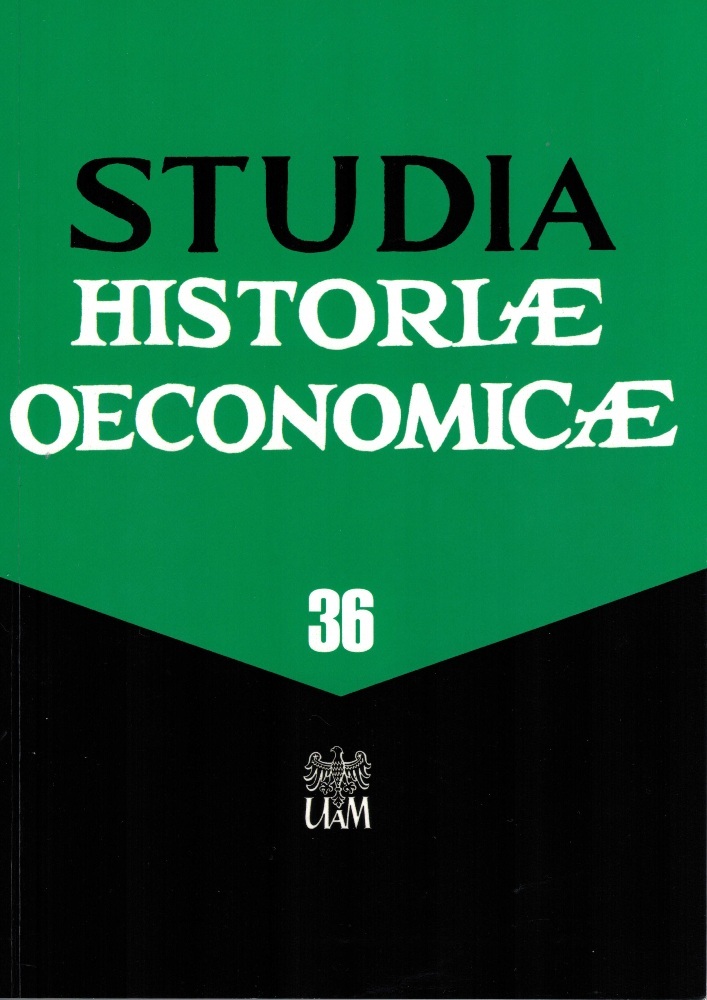Abstract
Transfer of Japanese Culture Patterns on the Example of a Comic Book. How Manga Conquered the World and Became an Integral Part of the Polish Publishing Market?
References
Ewa Witkowska, Komiks japoński w Polsce: historia i kontrowersje [Japanese Comic in Poland: History and Controversy], Toruń 2012.
Jay Navok, Sushil K. Rudranath, Jonatthan Mays, Warriors of Legend: Reflection of Japan i Sailor Moon [Warriors of Legend: Reflection of Japan and Sailor Moon], North Charleston 2005.
Jerzy Szyłak, Komiks w kulturze ikonicznej XX wieku: wstęp do poetyki komiksu [Comic book in the iconic culture of the 21st century: introduction to the comic poetry], Gdańsk 1999.
John E. Ingulsrud, Kate Allen, Reading Japan Cool: Patterns of Manga Literacy and Discourse, Tokyo 2009.
Gordon Mathews, Supermarket kultury: kultura globalna a tożsamość jednostki [Global Culture/Individual Identity: Searching for Home in the Cultural Supermarket], Warszawa 2005.
Frederik L. Schodt, Manga! Mang! The World of Japanese Comics, Tokyo – New York 1997.
Frederik L. Schodt, Dreamland Japan: writings on modern manga, California 1996.
Roland Kelts, Japanamerica: how Japanese pop culture has invaded the U.S., New York 2006.
Piotr Siuda, Anna Koralewska, Japonizacja: anime i jego polscy fani [Japanisation: anime and its Polish fans], Gdańsk 2014.
Mark Berninger, Jochen Ecke, Gideon Haberkorn (red.), Comics as a nexus of cultures, North Carolina – London 2010.
Marek Misiora, Bibliografia komiksów wydawanych w Polsce w latach 1905 (1859)-1999: albumy, magazyny, komiksy z gazet, książki o komiksie [Bibliography of comics published in Poland in 1905 (1859) -1999: albums, magazines, comics from newspapers, books about comics], Poznań 2010.
Toni Johnson-Woods (red.), Manga: An Anthology of Global and Cultural Perspective, New York – London 2010.
Artur Górski, Jak ze złego snu [Like from a bad dream], „Polityka”, 1997, nr 51.
Bartłomiej Chaciński, Manga: cywilizacja komiksu [Manga: the civilization of the comic], „Nowa Fantastyka” 1997, nr 5.
Jarosław Przewoźniak, 15 lat mangi w Polsce. Czasy premangowe [15 years of manga in Poland. Premanga Times], 12 November 2011, jarazppk.blogspot.com/2011/11/15-lat-mangi-w-polsce-czasy-premangowe.html.
Jean-Marie Bouissou, Japan’s Growing Cultural Power: The Example of manga in France, https://hal-sciencespo.archives-ouvertes.fr/hal-00972716/document.
Łukasz Reczulski, Paula Gamus, Historia łódzkiego fandomu mangi i anime w latach 1995-2010 [History of the manga and anime fandom in Łódź in the years 1995-2010], Acta Universitatis Lodziensis. Folia Librorum 2(21), 2015.
Neil Cohn, Japanese Visual Language: The structure of manga, http://www.visuallanguagelab.com/P/japanese_vl.pdf.
„Mechademia, vol 1: Emerging the Wordls of Anime And Manga”, University of Minesota Press, Minneapolis 2006.
Marcin Jaworki, Japońska inwazja (pop)kulturowa? Kontrowersje wokół japońskich komiksów i filmów animowanych w Polsce [Japanese cultural (pop) invasion? Controversies around Japanese comic books and animated films in Poland], „Edukacja Otwarta”, 2002, nr 1/2.
Przemysław Jankowski, Tomasz Bazylewicz, Imperializm kulturowy czy globalny konsumpcjonizm? Jak (czy) manga podbiła świat?[ Cultural imperialism or global consumerism? How (or did) Manga conquer the world?], „Zeszyty Komiksowe” nr. 13., 2012.
Przemysław Jankowski, Tomasz Bazylewicz, Synkretyzm kulturowy na wybranych przykładach. Analiza krytyczna Ghost in the Shell, Appleseed oraz Fullmetal Alchemist [Cultural syncretism on selected examples. Critical analysis of Ghost in the Shell, Appleseed and Fullmetal Alchemist], „Zeszyty Komiksowe” nr. 13., 2012.
Radosław Nawrot, “Załogę G” znał z telewizji każdy. Niestety w latach 80. nie puszczono jej końcówki. W PRL była nie do zaakceptowania [Everybody knew the G Crew from television. Unfortunately in the 80s, its ending was not released. In PRL it was not acceptable], [w:] Wyborcza.pl http://wyborcza.pl/alehistoria/7,121681,22781279,zaloge-gznal-z-telewizji-kazdy-niestety-w-latach-80-nie.html.
License
Copyright (c) 2018 Tomasz Bazylewicz

This work is licensed under a Creative Commons Attribution-ShareAlike 4.0 International License.




